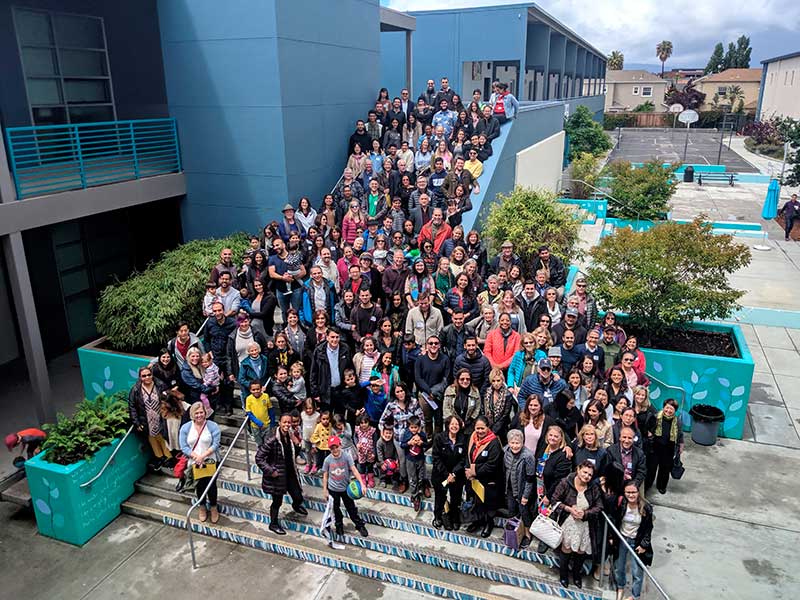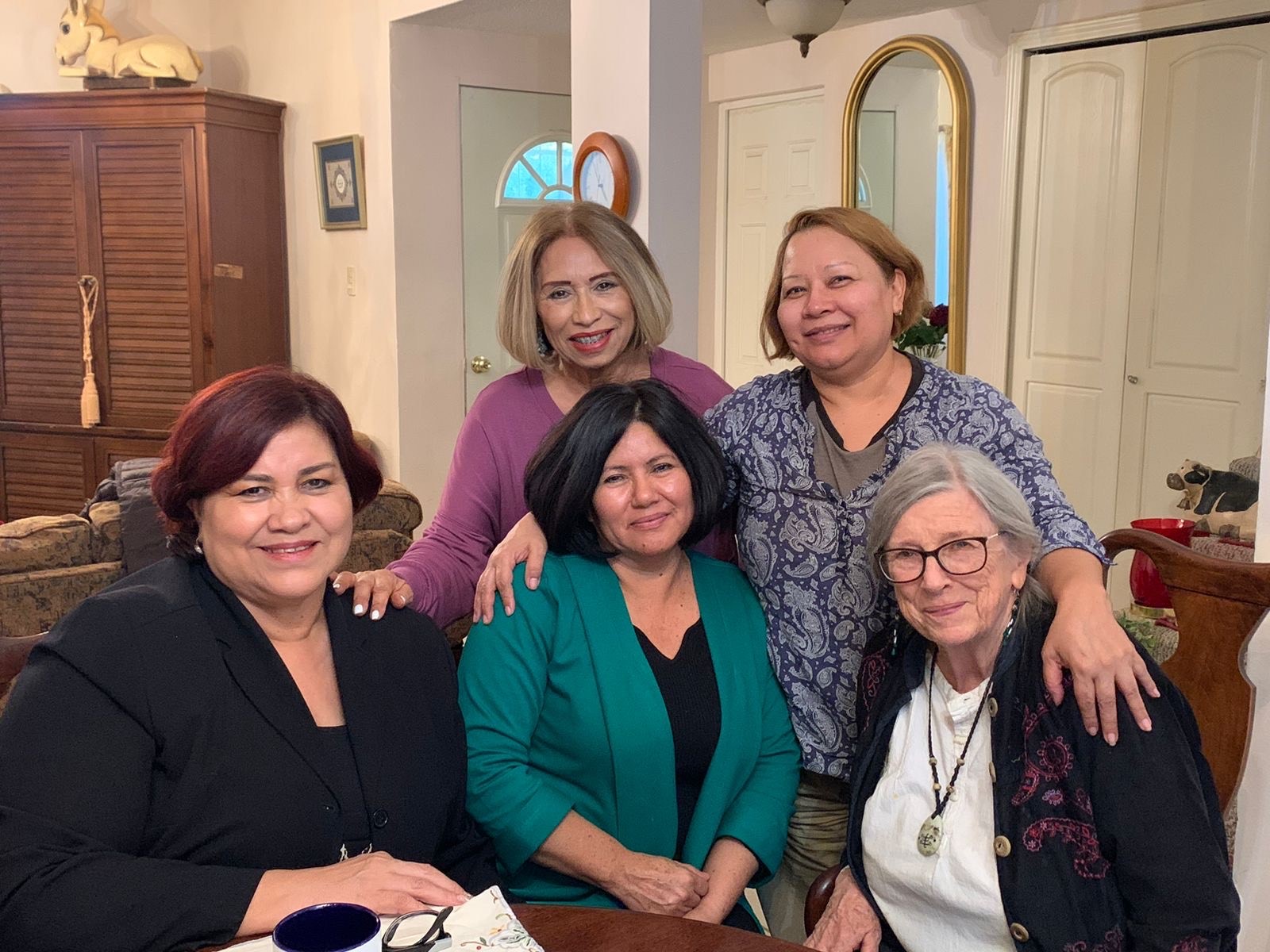
Twin message of vision and action emerges following conference
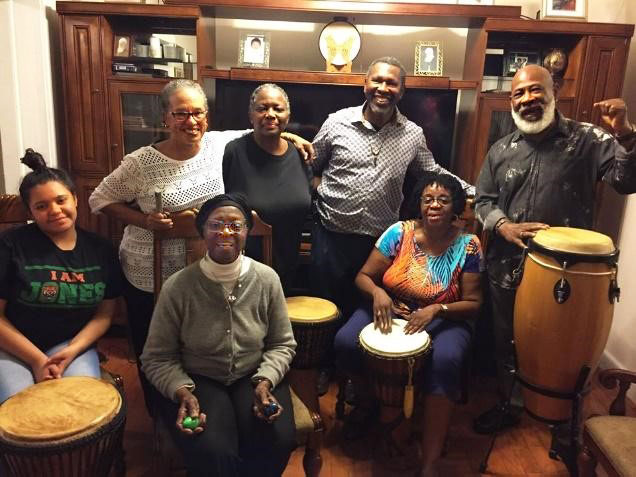
Dozens of gatherings have been held since Thanksgiving 2019 and acts of service potentially much greater in number are being carried out to spread a message nationwide.
The more than 300 who participated in the Baha’i-initiated ARISE Pupil of the Eye Conference in Nashville, Tennessee, want everyone to know that the writings of their Faith bestow on black people the station of “pupil of the eye” from which all vision emanates.
Not only that. They’re urging African Americans to move into the vanguard of Baha’i-initiated efforts to unify humanity through neighborhood-level activities that build community.
People who had participated in the conference got the ball rolling in delivering that twin message.
A small group of conference-goers back home in the Chicago area met at Van Gilmer’s house with a goal to “reflect on what our group of attendees had done in 2019 and what we will do in 2020 to focus more on action when dealing with race issues.”
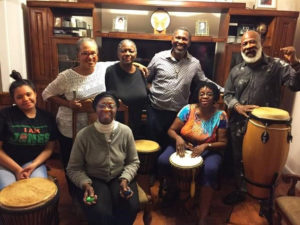
Fourteen people who had attended the conference gathered in the Mount Vernon, New York, home of Clyde Herring “to reflect, debrief, consult and pray. What a blessed spiritual gathering,” she says.
In a Sanford, Florida, home, host Baha’is Willis and Beverley Burris reflected on their conference experience with local African Americans. Then “each person took turns sharing the effect [of a video they viewed] in their own spiritual journey to grow and overcome the stain of racism in America.” (Beverley has since passed away.)
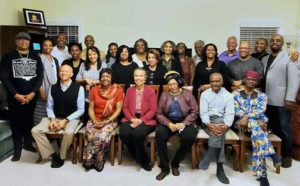
Twenty-seven people drove hours from across two states to a Durham, North Carolina, home for a gathering hosted by Baha’is Bob James, Charles Bullock, Harvey McMurray and Cara Williams aimed at providing “a safe space for those of African descent to meet.” Fellowship and a meal were followed by devotions: “a heartwarming, inspiring, uplifting, energizing conversation with God … lasting as long as the participants want it to last.”
From such gatherings emerged a multitude of devotional meetings, fireside talks, discussion groups and, by extension, a greater commitment to outreach in the wider community. Some were initiated by individuals and others by Spiritual Assemblies, the local Baha’i governing councils.
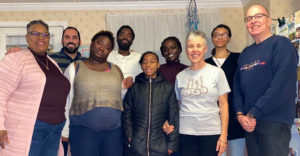
Gaithersburg, Maryland, Baha’i Susan Troxel tells of a fireside “graced by the presence of five [African-American] seekers after truth, including a precious child and teen. We shared writings about the pupil of the eye and discussed their special station and spiritual destiny.”
The host, who is white, reflects, “Perhaps it’s the quality of true love and warmth we can strive to show, through our actions, that can touch these hearts, in addition to the words that are spoken and the precious teachings about their spiritual destiny which are shared.”
At simultaneous gatherings in the St. Louis, Missouri, area for black and white Baha’is, the transformative experience of the conference was shared and participants discussed materials they had been sent in advance.
Tod Ewing, a Baha’i in Washington, DC, tells of “feeling grateful to serve on a Local Spiritual Assembly that continues to address issues of the elimination of racial prejudice, continues to ask itself what the racial, cultural and class implications are of its decisions, continues to focus the attention of the community on reaching people of African descent.”
Mentioning a meeting with newly enrolled African-American Baha’is in which the Assembly “shared the station of the pupil of the eye,” he notes, “These topics are frequently at or near the top of our agenda as the Assembly strives constantly to dig deeper into the issues and continues to find ways to guide the community.
“The elimination of racial prejudice is not separate and apart from the community-building process but central to it, and the Assembly continues to learn about how to address it within that context.”
Florence, South Carolina, Baha’i Adalia Ellis echoes that. “I got what I wanted from the conference. With tears in my eyes I say that I was heart sore and in deep need for a safe space and a refuge.”
And now, she says, “I will begin to create materials using guidance that will include the arts and be intergenerational to better understand the unique and special designation that God has given to the people of African descent.”
Further, Ellis anticipates reaching out in hopes of attracting a few young people to get involved in neighborhood community building. “We will also do home visits with parents. We will emphasize the role of people of African descent as protagonists in our communities and our contribution to advancing the oneness of mankind.”


